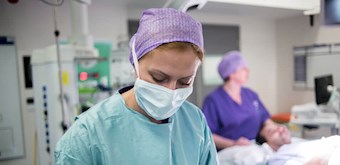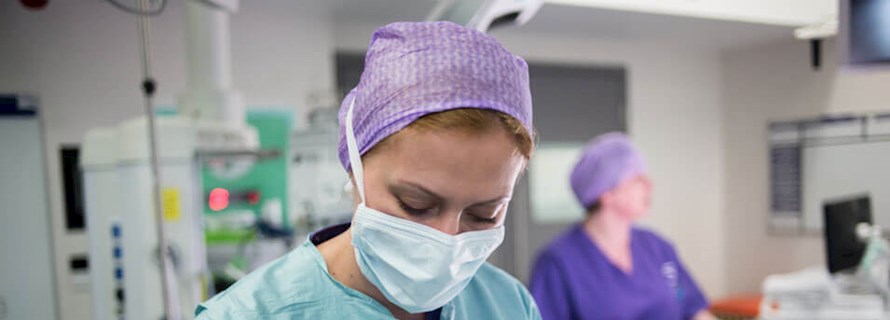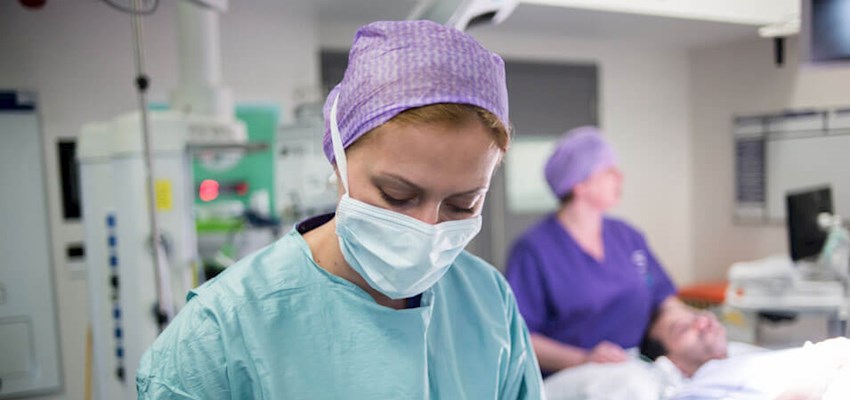Heart bypass surgery
Coronary artery bypass graft (CABG)
A surgical procedure used to treat coronary heart disease.
About having a heart bypass
Heart bypass surgery is usually undertaken to divert blood around blocked arteries to improve blood flow and deliver oxygen to the heart muscle.
During heart bypass surgery, healthy blood vessels from elsewhere in your body are transferred and grafted to your heart. This allows blood to be diverted around blocked or narrowed arteries to improve the flow of oxygen-rich blood into your heart. The operation can relieve angina and help improve your quality of life.
Need to know
-
What happens during heart bypass surgery? icon plus
During surgery, a healthy artery or vein is taken from another part of your body, usually your arm, leg or chest wall. For most heart operations, surgeons will use the traditional heart surgery technique which involves cutting the breastbone.
Sometimes coronary artery bypass surgery can be carried out without stopping the heart. Your surgeon will graft a blood vessel between the aorta (the main vessel leaving the heart) and a point along the coronary artery, past the narrowed area. Surgery usually takes about three hours. -
How to prepare for surgery icon plus
You will be seen by your consultant who will discuss the reasons for recommending surgery. You will be told of the risks of the operation and the risks of not having surgery. All aspects of the procedure will be discussed including side effects. As you're having a general anaesthetic, you'll be asked to stop eating and drinking for six hours beforehand. -
After heart surgery icon plus
Immediately after surgery, you'll be transferred to intensive care so you can be monitored until you wake up. Once your condition is stable, you'll be moved to the high dependency unit or the cardiac ward. You should be out of bed the next day, but you'll be cared for in hospital for around a week following your surgery and be given painkillers to relieve any pain.
Once you've been discharged, you'll need help at home, so you should arrange for someone to stay with you for a couple of weeks following the procedure. You'll also need to arrange for someone help you get home from the hospital. You will not be able to drive for one month. You will be seen by your consultant about six weeks after the operation. You should make a full recovery after about three months depending on your fitness, age and how severe the problem was. Your consultant will let you know what to expect.
Our cardiothoracic surgeons
Our specialists work together to ensure each patient receives the highest level of cardiac care.




Our cardiac surgery locations in London
From complex cardiothoracic surgery to cardiac rhythm tests and minimally invasive cardiac procedures, we provide exceptional cardiac care across our network of hospitals, outpatient centres and specialist clinics.
Private heart valve surgery in Birmingham
Request a cardiac appointment
If heart symptoms are affecting your quality of life, we’re here to help. Our heart team is available to book an appointment with a cardiac specialist.
Call us today
020 7616 4988